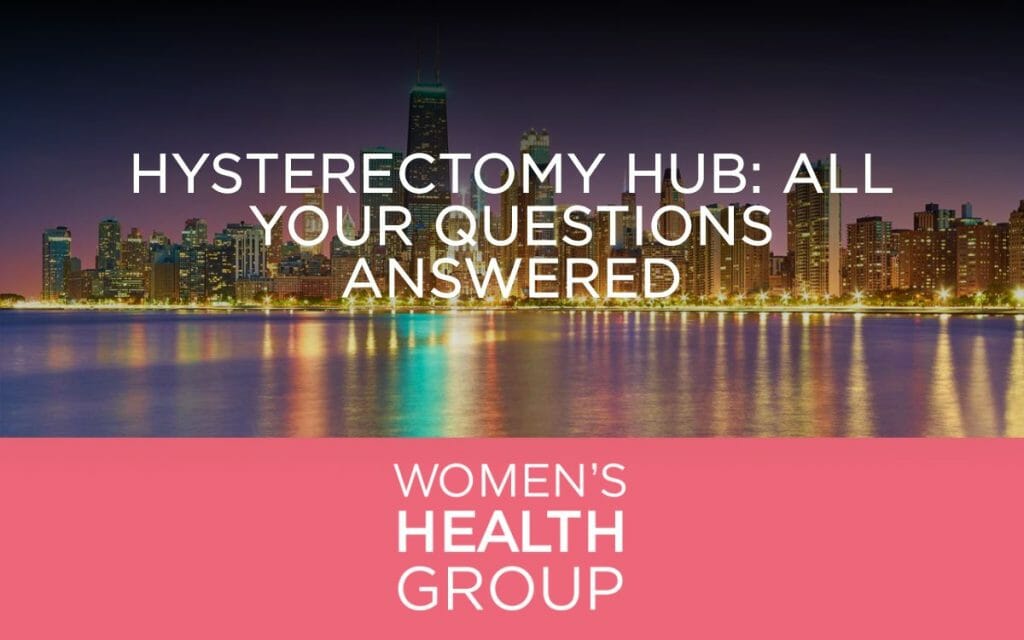Understanding the Basics of Hysterectomy
The field of obstetrics and gynecology at Women’s Health Group in Chicago, Illinois, is enlightened with an array of impressive medical services. One essential procedure that holds a significant place in our portfolio is Hysterectomy. Consider this your personalised Hysterectomy Hub designed to answer all your queries related to this surgical method.
A hysterectomy is a surgical operation to extract a woman’s uterus or womb, the area where a baby develops when a woman is pregnant. After a hysterectomy, menstruation stops, and women cannot become pregnant.
Types of Hysterectomy
There are three primary types of Hysterectomy:
- Total Hysterectomy: This procedure includes the removal of the entire uterus and cervix.
- Partial or Supracervical Hysterectomy: Only the upper part of the uterus is removed, and the cervix is left in place.
- Radical Hysterectomy: This is performed when certain cancers are present. The whole uterus, tissue on the sides of the uterus, cervix, and the top part of the vagina are removed.
Reasons to Opt for a Hysterectomy
According to data from leading healthcare providers like the Mayo Clinic, numerous health problems can lead to a hysterectomy. Some common reasons include uterine fibroids, abnormal uterine bleeding, gynecologic cancer, endometriosis, uterine prolapse, adenomyosis, and chronic pelvic pain. Indeed, multiple medical concerns need the expert advice of an Obstetrician-gynecologist to inspect and advise on the best line of treatment.
Preparation for a Hysterectomy
Like any major surgery, a hysterectomy requires careful preparation. This can include blood tests, pre-surgical physical exams, medication adjustments, and sometimes, enemas or special cleansers to clean out the bowel before surgery. To gather more detailed educational content about this, patients can access the Mayo Clinic’s Hysterectomy Hub, which provides comprehensive instructions.
Procedure of a Hysterectomy
During a hysterectomy, the patient is put under anesthesia. The surgeon then performs the procedure either through an incision in the lower abdomen or via the vagina – referred to as an abdominal hysterectomy and vaginal hysterectomy, respectively. In some cases, a tool called a laparoscope assists in vaginal hysterectomy. Recovery times vary based on the procedure and personal health factors.
Aftercare and Recovery from Hysterectomy
Patients usually stay in the hospital for one to two days following the operation, and full recovery takes anywhere from three to six weeks. During the initial recovery period, it’s essential to abstain from rigorous physical activity, lifting heavy items or having sex. Completing the full course of prescribed medication is also fundamental to recovery. Remember that your healthcare provider’s postoperative care guidance is critical – it’s always worth asking questions if there’s anything you are uncertain about.
Potential Risks of Hysterectomy
As with any major surgery, several risks are associated with a hysterectomy. These may include infections, heavy bleeding, injury to surrounding organs, adverse reaction to anesthesia, early onset of menopause (if ovaries are removed) and emotional distress or depression due to the inability to have children post-surgery.
Life After a Hysterectomy
Life after a hysterectomy can often bring a release from the symptoms that caused the need for the surgery, such as severe pain or heavy bleeding. However, these benefits must be weighed against the potential risks and changes the operation will bring about – such as changes in hormone levels and the onset of menopause if the ovaries are removed. Importantly, it’s not uncommon for women to experience a period of emotional adjustment or to need support during this time.
Considering the plethora of information available on the internet today, you might still have gymnastics in your mind while weighing in your options. In such a situation, it’s crucial to know where to look women’s health hub holds a reservoir of vital information you can bank on.
Wrapping Up
In conclusion, a hysterectomy is a significant surgical procedure that can prove life-changing for many. It’s of utmost importance to be fully informed and consult with an expert Obstetrician-gynecologist to make the best decision for your health. At Women’s Health Group in Chicago, Illinois, we’re committed to helping guide you through your healthcare decisions, providing you with the most appropriate, personalized care possible. Our dedicated practitioners are ready to provide the necessary support and advice to help you make the best healthcare decisions




